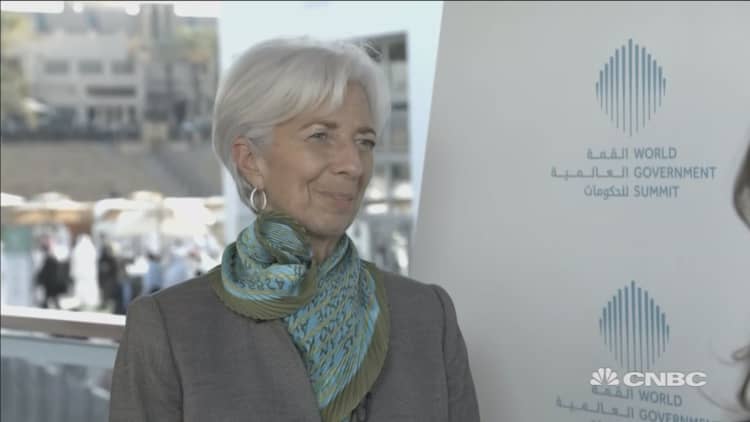
Last week's roller-coaster ride for the markets is not a major source of concern for the International Monetary Fund (IMF) — in fact, it sees it as a "welcome correction."
Speaking to CNBC at the World Government Summit in Dubai, IMF Managing Director Christine Lagarde acknowledged the last week's frenzied market sell-off, which saw the Dow Jones suffer its worst week in two years. Asked if this was something to worry about from the IMF's perspective, Lagarde was unfazed.
"There has been quite a bit of market volatility from one day to the other, particularly led by the U.S.," she said. "But if you compare market valuations from a week ago, there's been a market correction of anywhere between 6 to 9 percent. Which frankly, given where asset prices were — very high — it's in our view a welcome correction."
The S&P 500 officially fell into correction territory on Thursday, down more than 10 percent from its January peak. Financial analysts have long warned that the rocketing bull market of the past year would at some point come to a screeching correction thanks to its highly overvalued stock prices — and it appears last week was the first sign of that, though experts are divided over whether the market has bottomed out or if it has further to go.
But the IMF chief echoed the sentiment of many other bank bosses and investors toward the week's developments, who noted that fundamentals like global GDP growth rates and company earnings were still strong, so this would not fundamentally affect the real economy or countries' abilities to continue growing.
"We've observed that despite the volatility, the market channels and pipes and mechanisms have worked well, and we also see that the financing is still plenty and very much available for the financing of the economy," Lagarde said.
"So corrections happen, they were due to happen, and that's where we see it."



